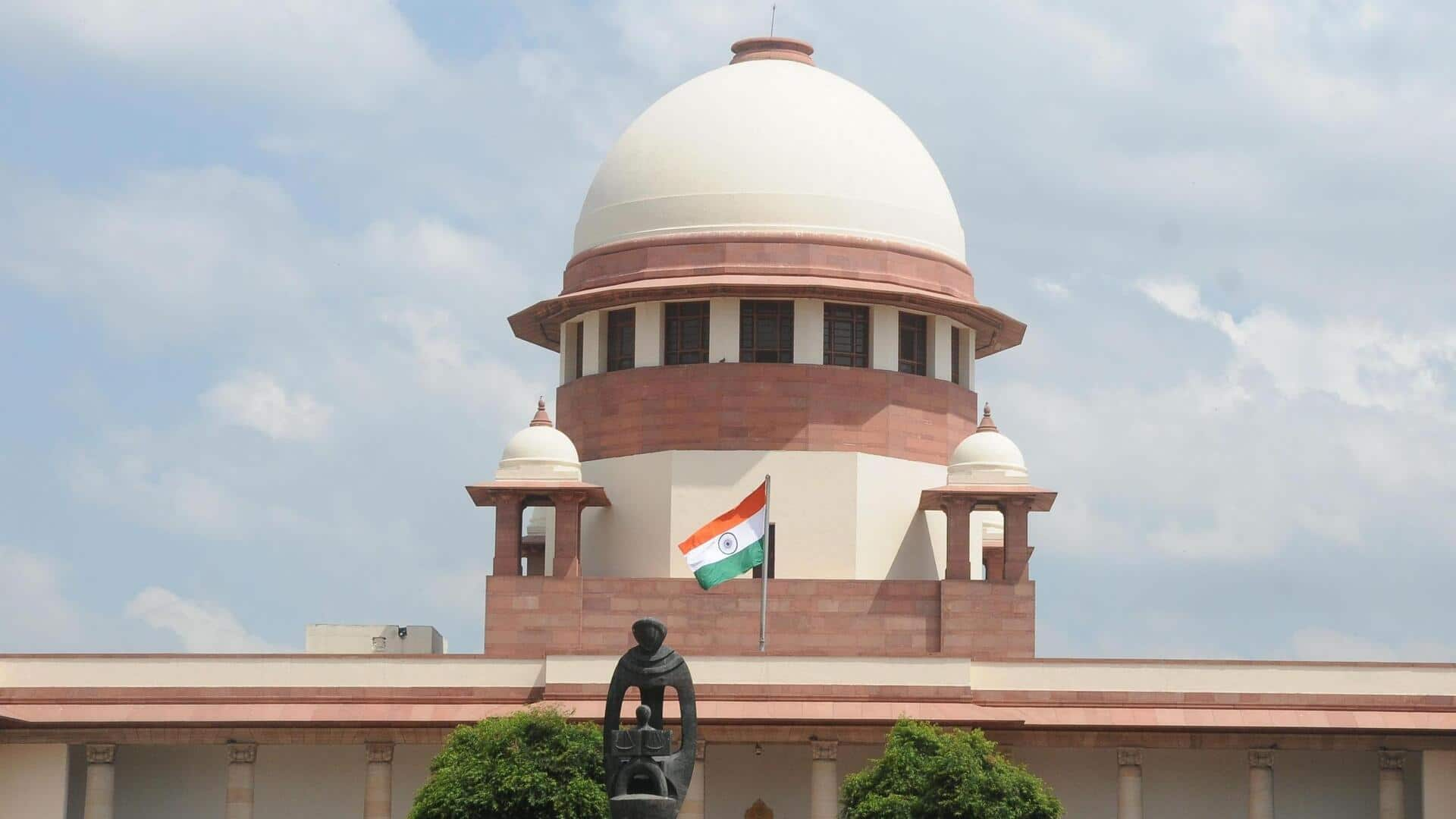
Supreme Court to hear petitions challenging Waqf (Amendment) Act today
What's the story
The Supreme Court will hear a batch of petitions challenging the constitutional validity of the Waqf (Amendment) Act. This follows the government's decision to pause two central aspects of the controversial law in response to probing questions by the apex court. The Centre had given a written assurance on April 17 that it would not denotify waqf properties or make appointments to the Central Waqf Council and boards till May 5.
Government's stance
Centre defends Waqf (Amendment) Act in Supreme Court
The Solicitor General Tushar Mehta, representing the government, contended that the law had been passed by Parliament after "due deliberations," and couldn't be stayed without hearing them. The Centre objected to the apex court's proposal of issuing an interim order against denotifying waqf properties and halting a provision that would allow non-Muslims to become part of the Central Waqf Council and boards. It has filed a 1,332-page preliminary affidavit in the SC seeking dismissal of petitions.
Court's directive
Supreme Court grants time to Center
The SC accepted Mehta's submissions and said that waqf properties, including 'waqf by user,' already registered or declared by way of notification, won't be disturbed and denotified till the next hearing. It then granted a week's time for the Centre to file an initial response to the petitions challenging the law's validity. It has now been scheduled for May 5.
Case details
Supreme Court to hear petitions against Waqf Act
The SC will hear a batch of five petitions titled In Re the Waqf (Amendment) Act, 2025 and other related pleas on May 5. These include the petition filed by AIMIM chief and Hyderabad MP Asaduddin Owaisi. In its April 25 affidavit, the Centre defended the amended Act and opposed "blanket stay" by the court on a "law having presumption of constitutionality passed by Parliament."
Justification
Government defends 'waqf by user' properties
Defending a provision on "waqf by user" properties in its affidavit, the government said any interference would create a "legislative regime by a judicial order." 'Waqf by user' means a property is recognized as a religious or charitable endowment (waqf) because of its prolonged use for such purposes. This can be even in the absence of a formal declaration of waqf by the owner.
Government's claim
Centre's affidavit on Waqf (Amendment) Act
In a comprehensive counter-affidavit, the Ministry of Minority Affairs quoted provisions of earlier waqf laws and said registration of waqf properties has been mandatory since 1923. The government argued that the Waqf (Amendment) Act, 2025, respects essential religious practices of Muslims by leaving faith and worship matters "untouched." It also pointed out an addition of 20 lakh acres of waqf land after the law's 2013 amendment.
Dispute
AIMPLB accuses Centre of providing incorrect data
The All India Muslim Personal Law Board (AIMPLB) has accused the Centre of submitting wrong data in the top court and sought action against the concerned officer for submitting a "false affidavit." The board has vehemently challenged the government's claim that there has been a "shocking increase" in Waqf properties uploaded to the central portal after 2013. The government notified the Waqf (Amendment) Act, 2025, last month after it received President Droupadi Murmu's assent on April 5.